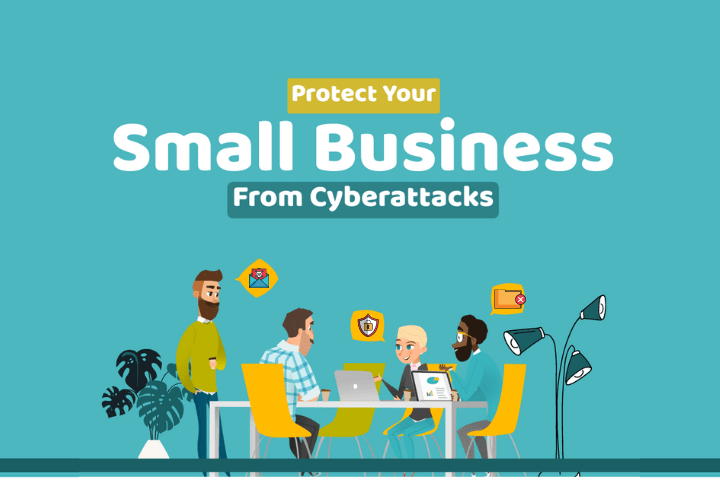Only some companies fall into one of the High risk categorized industries. This means that you should be prepared. Small businesses are often particularly exposed to attacks for many reasons. First, IT administration and Protection often need more time, space, and resources. This challenge was further exacerbated by the possibility of working remotely during the pandemic. This increased the attack area significantly outside of corporate infrastructure. Second, Small business companies are often victims of cyber criminals looking for easy goals. This is how hackers like to use and use weak passwords and Phishing emails to gain control over a company’s computers and network. Companies can do this with a handful of basic arrangements to protect against it and thus significantly reduce its susceptibility.
Create a culture of security.
Experience shows that man is one of the most significant security risks. At the same time, it is also the key to securing the company as best as possible. Therefore, the awareness raising of the employees remains an essential task. In cyber security, much technology is involved, but many risks are actually “human nature. “More than 80 per cent of the cyber attacks on compromised Passwords or login data can be traced back to –, primarily due to human misconduct. The information provided by the company and its employees on the subject of data security is of crucial importance. Everyone should be their role concerning the Protection of data and resources of the company.
Also Read: Choosing the Best Online Marketing Agency for Your Business
Basic best practices.
As soon as employees understand the importance of Information security, it is vital to introduce best practices to minimize security risks. This includes basic Password hygiene: the use of secure passwords, the frequent change of passwords, the avoidance of reuse, and the prevention of password forwarding, in which these can be stolen. The use of a Multi-factor authentication ( MFA ) represents another critical level of Protection. Managing access rights within the company also helps reduce the risk by restricting access to essential systems to Small business teams. Tools that help, Phishing attacks filter out or prevent compromised devices from accessing networks can be additional Protective measures used if there should be a compromise of passwords.
Please keep it simple.
These proven measures appear apparent. However, their implementation can be a challenge for companies because they are one of the employees. Behaviour change is required. Password managers can make it easier for teams to implement it since all aspects of password security – access and authentication – are managed in one place.
Success factors analysis and information.
As the saying goes: You cannot control what you cannot measure. The most sensible thing is to start with a simple analysis to improve the security to be recorded in the company and to uncover any gaps as quickly as possible. For example, are there employees who recycle passwords? Can you recognize apps and logins with vulnerabilities in the company’s safety net? Security tests and regular audits can be used to determine how many employees use the same password again or use weak passwords. Since cyber security constantly changes, companies should also regularly inform themselves about current reports. You can do that, for example, at Federal Office for Information Security ( BSI ) or the Alliance for Cyber Security ( ACS ).




